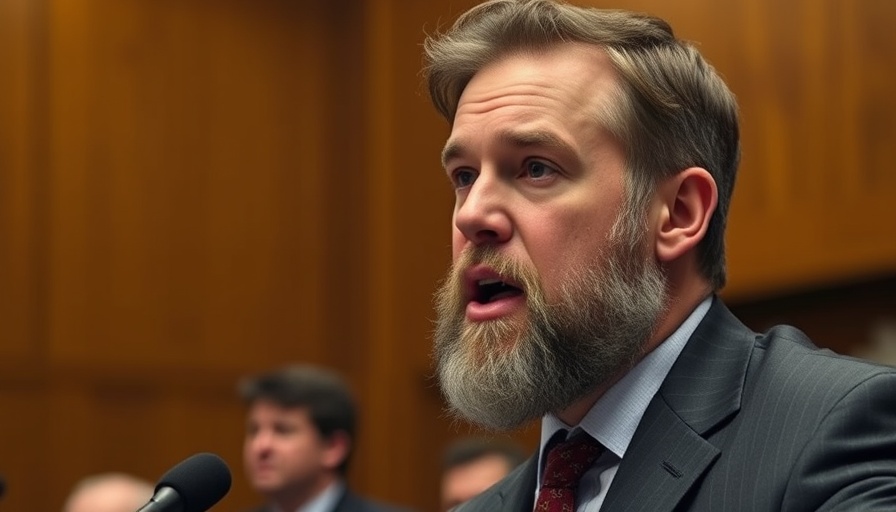
Unpacking the Trump Administration's Deportation Plans for Venezuelans
The recent announcement from the Trump administration regarding the potential deportation of Venezuelans is both striking and complex. During a court hearing, a U.S. Justice Department attorney, Drew Ensign, informed a federal judge that the administration reserves the right to deport suspected gang members from Venezuela, a move that could affect scores of individuals given the ongoing humanitarian crisis in the country. While the Department of Homeland Security (DHS) said they are currently unaware of any planned deportation flights, the government assertively hinted at its capabilities and intentions to carry out deportations at any time.
The Humanitarian Crisis in Venezuela: Context is Key
Understanding the gravity of this situation requires a closer look at the humanitarian backdrop in Venezuela. The nation has been engulfed in turmoil marked by political instability, economic collapse, and increasing violence. According to recent reports, millions of Venezuelans have fled their homeland seeking refuge from hardship. Deporting individuals back to such an environment raises significant ethical concerns and casts doubt on the administration's responsibility to protect vulnerable populations.
Legal Implications and Human Rights Concerns
The legality of these deportations also warrants examination. As the DOJ lawyer highlighted, the reserve status of deportation plans opens the door to numerous legal battles. Advocates for immigrant rights and organizations focused on human rights have expressed alarm, stating that many of those facing deportation may be escaping life-threatening conditions. The United Nations has warned that returning individuals to Venezuela could violate international standards on human rights, adding a layer of complexity to the administration’s actions.
Counterarguments: Security Concerns vs. Human Rights
On the other side of this discussion lies the argument for national security. Proponents of strict immigration enforcement often push for the deportation of individuals who are alleged gang members, framing it as a necessary step to protect American communities. However, critics argue that these labels can be misapplied and lead to wrongful detentions and deportations of innocent individuals, underscoring the need for due process and careful consideration before taking such drastic measures.
Future Predictions: What to Expect
Looking ahead, the implications of this announcement could be far-reaching. As tensions escalate over immigration policies and human rights issues, further legal challenges are anticipated. It may also ignite broader discussions about U.S. foreign policy towards Venezuela and how that intertwines with domestic immigration practices. Many humanitarian agencies may ramp up their efforts to advocate for the rights of Venezuelans both domestically and internationally, pushing for reform that prioritizes human dignity and safety.
Concluding Thoughts: Advocating for Human Rights
The discussions surrounding the deportation of Venezuelans under the Trump administration highlight a critical intersection of law, ethics, and human rights. As this narrative unfolds, staying informed and engaged becomes imperative. Advocacy groups will likely call on citizens to sign petitions and contact their representatives to express their concerns regarding these deportations. By uniting in the pursuit of justice and compassion, we can shine a light on the essential humanity at stake in these widespread and complicated policies.
 Add Row
Add Row  Add
Add 



Write A Comment